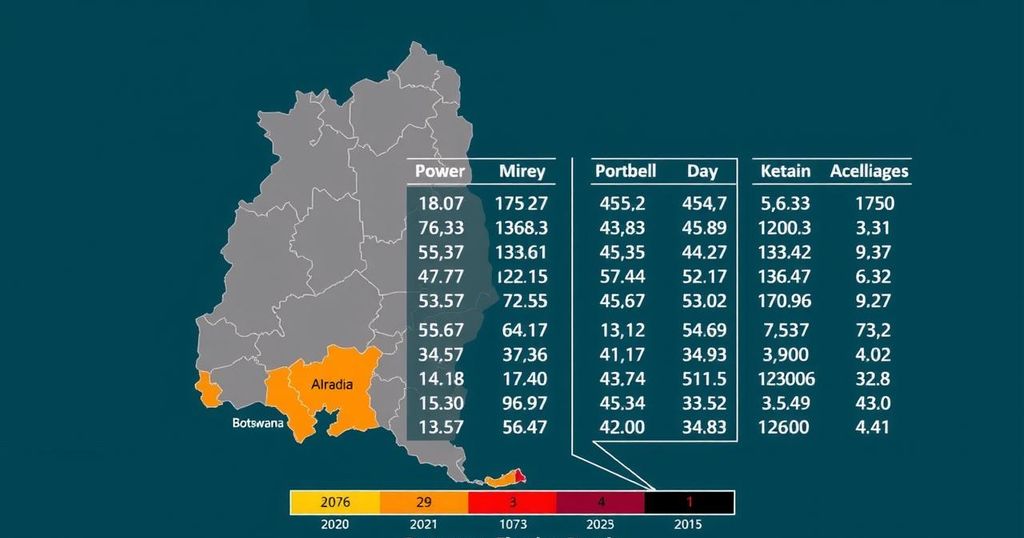Botswana Elections: Historic Shift in Governance as BDP Loses Long-standing Power

Botswana has experienced a dramatic political shift as voters have rejected the ruling Botswana Democratic Party (BDP), which has held power since independence in 1966. Preliminary election results show the BDP securing only one parliamentary seat, while the Umbrella for Democratic Change (UDC) has claimed 20 seats and is projected to form the new government under Duma Boko. Mr. Boko is expected to become president, succeeding Mokgweetsi Masisi, amid public dissatisfaction with the BDP’s economic performance.
In a significant political transformation, voters in Botswana have decisively unseated the ruling Botswana Democratic Party (BDP), which had been in power since the country’s independence in 1966. Preliminary election results indicate that the BDP has won merely one parliamentary seat, marking an unprecedented defeat for the long-dominant party. Conversely, the Umbrella for Democratic Change (UDC), led by seasoned human rights lawyer Duma Boko, has secured 20 seats and is expected to surpass the 31-seat threshold necessary to form a government. As Botswana’s members of parliament prepare to elect the new president, Mr. Boko is poised to assume the presidency during their inaugural session. This will mark his third attempt at the nation’s highest office, during which he has encouraged his supporters to “maintain vigilance and discipline.” Despite the governance challenges faced by the BDP, including poor economic performance and high unemployment levels, Mr. Boko’s leadership appears to resonate with the electorate. He will succeed Mokgweetsi Masisi, who has been at the helm since 2018 but could not convince voters of the BDP’s capacity to deliver the necessary change for the country’s future.
Botswana has been characterized by a stable political landscape since gaining independence from Great Britain in 1966. The Botswana Democratic Party (BDP) has historically garnered strong support due in part to the country’s considerable diamond wealth. However, recent years have seen increased public discontent due to stagnating economic growth and rising unemployment rates. This discontent has created opportunities for opposition parties, such as the Umbrella for Democratic Change (UDC), to gain traction among voters who seek alternative governance. The 2024 elections are pivotal as they not only represent a change in administration but also signify a larger shift in the political dynamics within Botswana.
The recent elections in Botswana signify a political upheaval, with the long-standing BDP being ousted after nearly six decades of rule. The UDC’s anticipated takeover under Duma Boko reflects the electorate’s desire for change amidst economic challenges. Should these early results be confirmed, it will mark a historic moment in Botswana’s democratic journey, laying the groundwork for new governance and potential reforms aimed at improving the country’s economic status and addressing unemployment.
Original Source: www.bbc.com








